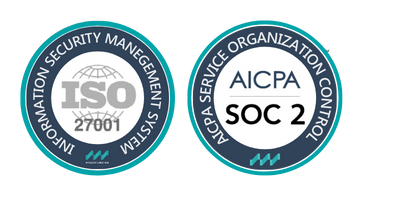Over the past decade, risk management within the banking sector has undergone a seismic shift, catalysed by the aftermath of the global financial crisis. Regulations stemming from increased scrutiny and the imposition of fines have propelled risk functions into a state of perpetual evolution. McKinsey Working Papers on Risk offer invaluable insights into this evolving landscape, outlining a future where risk functions in banks will undergo unprecedented transformations by 2025. In this blog post, we will highlight the key findings from the McKinsey report to discuss what the future of risk management in banking could look like.
Evolution of risk functions
From reactive guardians of financial stability to proactive architects of strategic decision-making, risk functions are poised to assume a vastly expanded role within banks. No longer confined to risk mitigation, they will become integral to shaping business strategies, optimising customer experiences, and navigating regulatory complexities.
Central to this evolution is a profound shift in the talent pool of risk functions. The expertise once focused on operational processes will give way to a new breed of professionals adept in analytics, machine learning, and collaborative problem-solving. Automation will streamline routine tasks, empowering risk managers to focus on strategic initiatives and value-added activities.
Collaborative imperative
The future risk function will thrive on collaboration, forging symbiotic relationships with business units and other functional areas. This collaborative ethos will foster agility, innovation, and cross-functional synergy, enabling banks to respond swiftly to market dynamics and customer demands.
However, this transformation extends beyond processes and technologies—it necessitates a cultural reinvention within banking organisations. A robust risk culture, underpinned by shared values and principles, will permeate every facet of the organisation, instilling a collective commitment to prudent risk-taking and ethical conduct.
To actualise this vision, banks must embark on a multifaceted journey of reinvention. Digitising core processes, harnessing advanced analytics and machine learning, enhancing risk reporting, and optimising balance sheets are among the pivotal initiatives outlined in McKinsey’s insights.
Enablers of transformation
Furthermore, establishing robust IT infrastructure, cultivating a diverse talent pool, and fostering a culture of continuous learning and innovation are critical enablers of this transformation. By investing in these foundational elements, banks can fortify their risk functions to thrive in an era defined by complexity and uncertainty.
As banks navigate the evolving landscape of risk management, the imperative for transformation has never been clearer. By embracing change, leveraging emerging technologies, and nurturing a culture of collaboration and innovation, risk functions can emerge as strategic partners in driving sustainable growth and resilience.
In essence, the future of risk management in banking is not merely about mitigating risks—it’s about seizing opportunities, fostering resilience, and charting a course towards a future defined by agility, efficiency, and excellence. The journey begins now, and the stakes couldn’t be higher.
The future of risk management in banking is about more than just mitigating risks; it’s about seizing opportunities, fostering resilience, and charting a course towards a future defined by agility, efficiency and excellence. By embracing change, leveraging emerging technologies and nurturing a culture of collaboration and innovation, risk functions can emerge as strategic partners in driving sustainable growth and resilience. The journey begins now, and the stakes couldn’t be higher.
Get in touch today to see how Wiserfunding can help simplify complicated risk management protocols and offer efficient navigation through the risk landscape, or learn more about our solutions here.
SIMILAR POSTS

19 July 2021
The link between default and recovery rates: effects on the procyclicality of regulatory capital ratios
BIS Working Papers are written by members of the Monetary and Economic Department of the Bank for International Settlements, and [...]

19 July 2021
New rating agency aims to save European SMEs from worst effects of Basel III
In July, Europe’s first certified credit rating agency for small and medium-sized enterprises (SMEs) was launched, holding out the promise that as [...]

Credit Risk Scoring Models
Credit scoring models play a fundamental role in the risk management practice at most banks. They are used to quantify [...]



